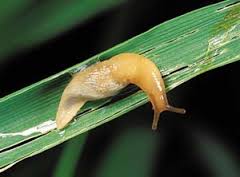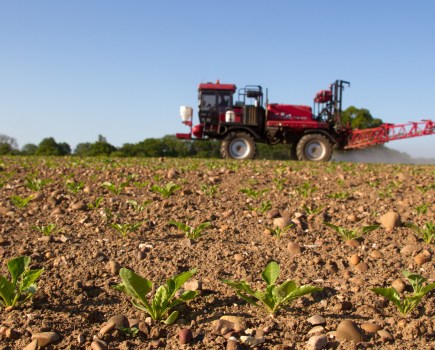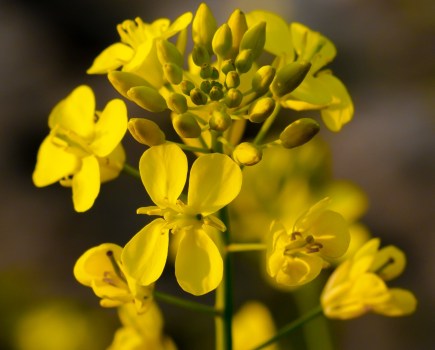One farm near Lincoln has been employing a rigorous, integrated approach to prevent slugs from wreaking havoc. Andrew Ward, farmer and host of Agrii’s iFarm site in Leadenham, says, “I’ve seen the damage slugs can do, which is why we work so hard to prevent them.”
Every grower knows the damage that slugs can do may be substantial, both above and below ground. Andrew Ward uses Deter (clothianidin) seed treatment to protect against seed hollowing, with the results particularly evident in a field of Revelation winter wheat. “Some of the crop had been treated with Deter, the rest had not. And the difference was stark,” he recalls.
“Seed treatment is a crucial tool to prevent slug damage, especially after the loss of methiocarb slug pellets,” he says, adding that he now uses ferric phosphate pellets as part of his integrated approach to slug control.
Matthew Garnett, Commercial Technical Manager at Bayer, agrees that it takes a combination of tools to maximize protection against slugs: “Seed treatment such as Deter will help protect the seed itself; slug pellets will then help protect the plant post-emergence.
“Management strategies play a big part too. Cultivation management is important in making sure the environment is less conducive to slugs – moving the soil less and to ensure cultivations result in a fine, firm seedbed. A clod-free seedbed gives slugs nowhere to hide. But you should also ensure you dispose of the surface trash that the slugs can feed on as well,” he advises.
Andrew Ward has found great success in preventing slugs by employing similar strategies. “A lot of growers still plough, which causes a huge amount of soil disturbance which creates many issues, of which increased slug activity is one. We haven’t ploughed since 2002,” he says.
“Instead, we consolidate at every opportunity. We use a Simba Solo, with a press attached behind it. That cultivates and consolidates the soil in one pass and we usually do that immediately after combining the previous crop so that the heavy soil is worked early. Then we use a Simba drill, which also consolidates the soil after the seed has been sown. Following that, if conditions are right, we roll straight afterwards as well.”
Such an approach has kept slug pressure on the farm to a minimum and has also been beneficial in preventing blackgrass. Andrew Ward notes that they’ve been blackgrass-free for three years. “Ultimately, this is the result of an intensive, zero tolerance strategy to slugs which reduces the potential for damage to the crop both pre- and post-emergence.”
“It’s about attention to detail,” concludes Matthew Garnett, “Growers have the tools to reduce the damage slugs do to their crops and it’s best to use as many of them as appropriate. Whether it’s seed treatment, seed bed preparation or slug pellets – making them all part of an integrated strategy is the best way of protecting crops against slugs.”




